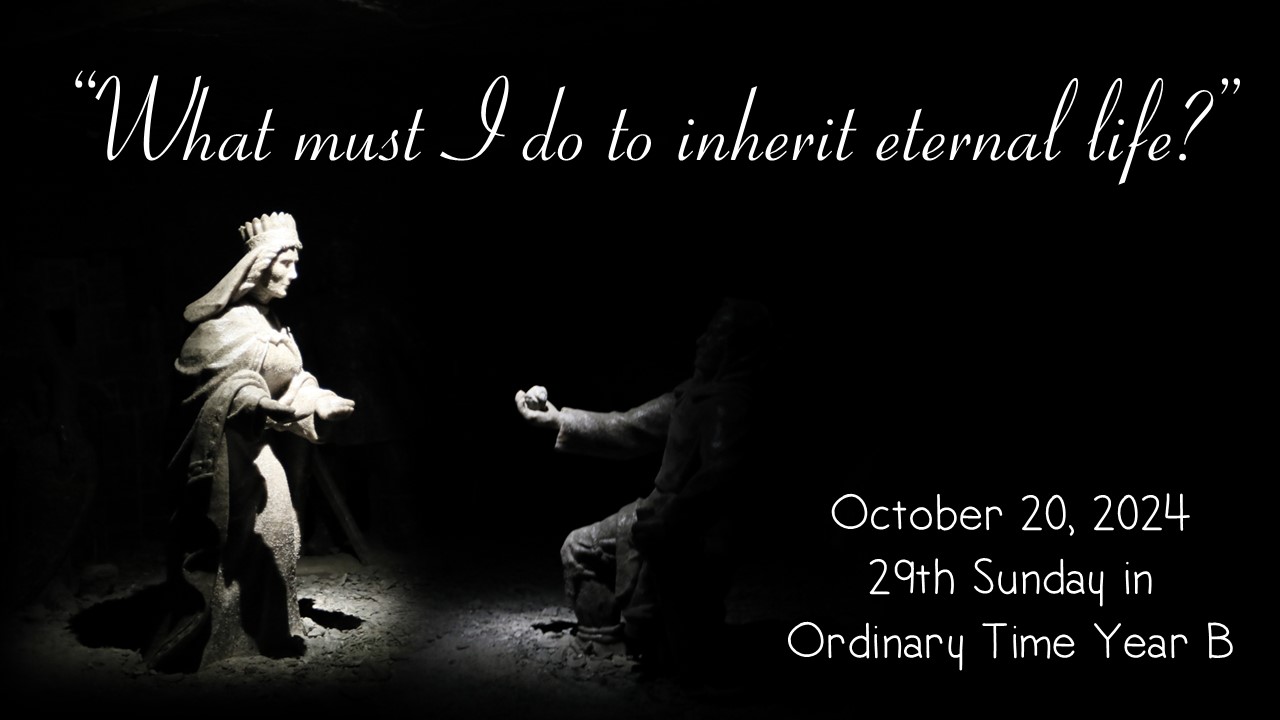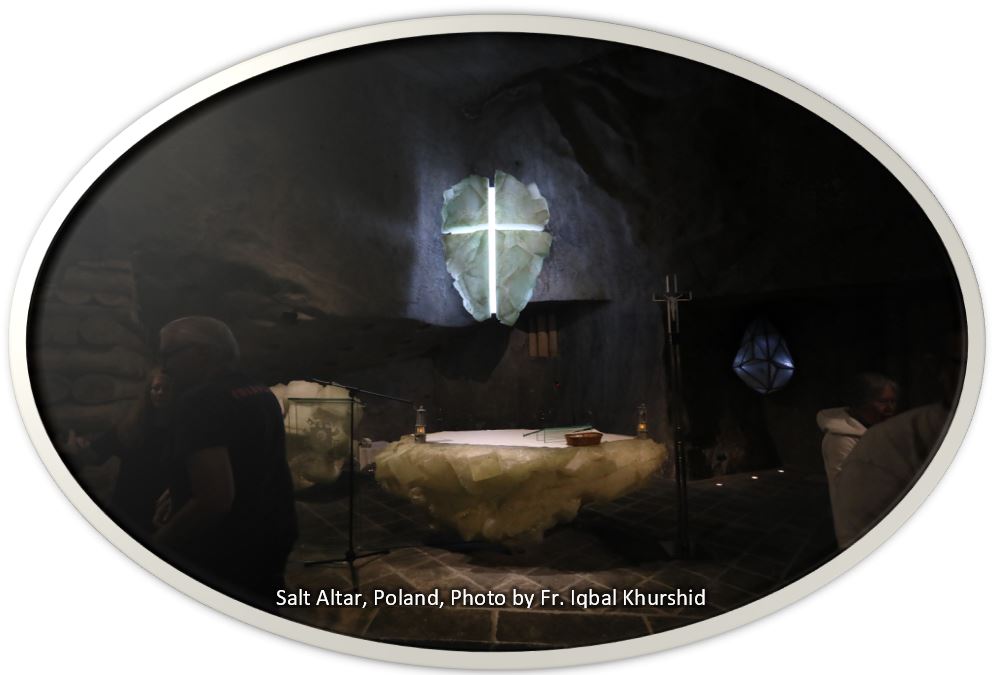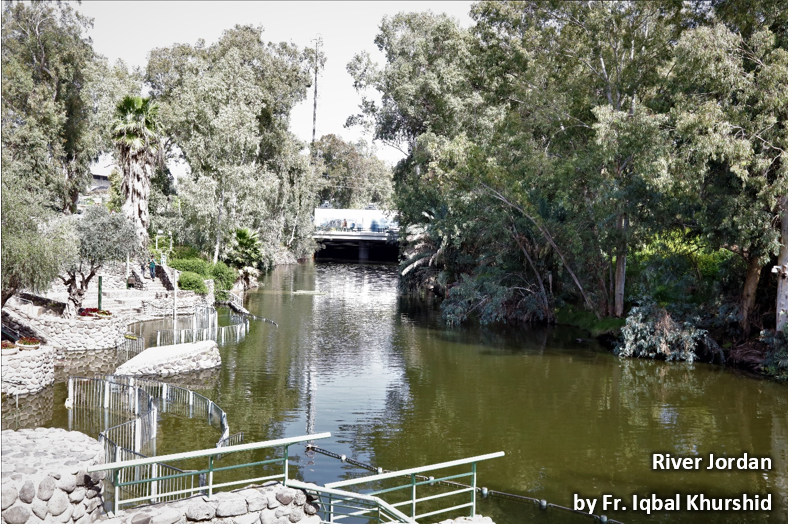
29TH SUNDAY IN ORDINARY TIME YEAR B ~ OCTOBER 20, 2024
PROPERTIES OF OUR LIFE
“What must I do to inherit eternal life?” was the question by the man in the Gospel of last Sunday which leads us to our struggles of faith to work hard to inherit eternal life. We must not forget that in our struggles and challenges of faith, the Lord keep encouraging us; “I have said this to you, so that in me you may have peace. In the world you face persecution. But take courage; I have conquered the world!” (John 16:33). St. Paul says “No testing has overtaken you that is not common to everyone. God is faithful, and he will not let you be tested beyond your strength, but with the testing he will also provide the way out so that you may be able to endure it” which is a beautiful reminder that our sufferings are the end of our relationship with the Lord. What is our response as Christians to suffering? Why is there suffering when Lord loves us so much? Why did Jesus suffer when he is Son of God? Why do good people suffer when there is no deceit found in them? What causes suffering in our lives? There are so many other questions we hear everyday. I guess most of the times our life runs around with too many whys and most of the time we find no answer to these “whys”.
In facing life’s great ‘whys?’, we have two paths: either stay and wistfully contemplate past and present sepulchres or allow Jesus to approach our sepulchres. Yes, because each one of us already has a small sepulchre, some area that has somewhat died within our hearts; a wound, a wrongdoing endured or inflicted, an unrelenting resentment, a regret that keeps coming back, a sin we cannot overcome. Today, let us identify these little sepulchres that we have inside, and let us invite Jesus into them. It is curious, but we often prefer to be alone in the dark caves within us rather than invite Christ inside them. We are tempted to always seek solutions for ourselves, brooding and sinking into anguish, licking our wounds, instead of going to him, who says, “Come to me, all who labour and are heavy laden, and I will give you rest”, (Mt 11:28). Let us not be held captive by the temptation to remain alone and discouraged, crying about what is happening to us. Let us not give in to the useless and inconclusive logic of fear, resignedly repeating that everything is going badly, and nothing is as it once was. This is the sepulchral atmosphere. The Lord instead wishes to open the path of life, that of encounter with him, of trust in him, of the resurrection of the heart, the way of: “Arise, Arise, come out”. This is what the Lord asks of us, and he is by our side to do so. However sometimes we fail to recognize that through his suffering we have been saved “Cast all your anxiety on him, because he cares for you” as St. Peter says.
Some years ago, on a hot summer day in south Florida, a little boy decided to go for a swim in the old swimming hole behind his house. In a hurry to dive into the cool water, he ran out the back door, leaving behind shoes, socks, and shirt as he went. He flew into the water, not realizing that as he swam toward the middle of the lake, an alligator was swimming toward the shore. His mother in the house was looking out the window saw the two as they got closer and closer together. In utter fear, she ran toward the water, yelling to her son as loudly as she could. Hearing her voice, the little boy became alarmed and made a U-turn to swim to his mother. It was too late. Just as he reached her, the alligator reached him.
From the dock, the mother grabbed her little boy by the arms just as the alligator snatched his legs. That began an incredible tug-of-war between the two. The alligator was much stronger than the mother, but the mother was much too passionate to let go. A farmer happened to drive by, heard her screams, raced from his truck, took aim and shot the alligator. Remarkably, after weeks and weeks in the hospital, the little boy survived. His legs were extremely scarred by the vicious attack of the animal. And, on his arms, were deep scratches where his mother’s fingernails dug into his flesh in her effort to hang on to the son she loved.
The newspaper reporter who interviewed the boy after the trauma, asked if he would show him his scars. The boy lifted his pant legs. And then, with obvious pride, he said to the reporter, “But look at my arms. I have great scars on my arms, too. I have them because my mom wouldn’t let go.” You and I can identify with that little boy. We have scars, too. No, not from an alligator, or anything quite so dramatic. But the scars of a painful past. Some of those scars are unsightly and have caused us deep regret. But, some wounds, my friend, are because God has refused to let go.
Amid our struggle, He’s been there holding on to us. The Scripture teaches that God loves us. We are children of God. He wants to protect us and provide for us in every way. But sometimes we foolishly wade into dangerous situations. The swimming hole of life is filled with peril – and we forget that the enemy is waiting to attack. That’s when the tug-of-war begins – and if you have the scars of His love on your arms be very, very grateful. He did not and will not – let you go. (Please read 1 Peter 5:1-14).
Once St. Teresa of Avila (also known as Teresa of Jesus) wrote; “If Christ Jesus dwells in a man as his friend and noble leader, that man can endure all things, for Christ helps and strengthens us and never abandons us. He is a true friend. And I clearly see that if we expect to please him and receive an abundance of his graces, God desires that these graces must come to us from the hands of Christ, through his most sacred humanity, in which God takes delight. Many, many times I have perceived this through experience. The Lord has told it to me. I have seen that we must enter by this gate if we wish his Sovereign Majesty to reveal to us great and hidden mysteries. A person should desire no other path, even if he is at the summit of contemplation; on this road he walks safely. All blessings come to us through our Lord. He will teach us, for in beholding his life we find that he is the best example.
What more do we desire from such a good friend at our side? Unlike our friends in the world, he will never abandon us when we are troubled or distressed. Blessed is the one who truly loves him and always keeps him nearby. Let us consider the glorious Saint Paul: it seems that no other name fell from his lips than that of Jesus, because the name of Jesus was fixed and embedded in his heart. Once I had come to understand this truth, I carefully considered the lives of some of the saints, the great contemplatives, and found that they took no other path: Francis, Anthony of Padua, Bernard, Catherine of Siena. A person must walk along this path in freedom, placing himself in God’s hands. If God should desire to raise us to the position of one who is an intimate and shares his secrets, we ought to accept this gladly.
Whenever we think of Christ, we should recall the love that led him to bestow on us so many graces and favors, and the great love God showed in giving us in Christ a pledge of his love; for love calls for love in return. Let us strive to keep this always before our eyes and to rouse ourselves to love him. For if at some time the Lord should grant us the grace of impressing his love on our hearts, all will become easy for us, and we shall accomplish great things quickly and without effort”.
There are two questions that have often left people confused and bewildered. One is, why does God allow bad things happen to good people; and the second is, why does God allow good things happen to bad people. We are often confused to why it seems that good things are always happening to godless people, but on the other hand, bad things are always happening to godly people. Let me try and give you an answer to those questions. As for the reason why, God allows good things to happen to bad people, the explanation is in one word, the word mercy. There is no other way to explain it. God is a merciful God. Jesus said, ”He makes His sun to rise on the evil and on the good and send rain on the just and on the unjust” (Matt 5:45). The same concept of mercy of we can see in the First Reading as we reflect on the Song of the Suffering Servant; “It was the will of the Lord to crush him with pain”. Does it make any sense to us that God himself allowing his Son to suffer? Is suffering end of our life or relationships? Jesus did suffer and died only to give us eternal life and that life change us to see him as he is as we read in the Letter to Hebrews. Through his suffering we have been saved for eternity because he bore our iniquities onto him.
As for the question, why does God allow bad things to happen to good people, the answer is in the word ministry. St. Peter tells us that God has a ministry in our suffering. He says, “And after you have suffered for a little while, the God of all grace, who has called you to his eternal glory in Christ, will himself restore, support, strengthen, and establish you. To him be the power forever and ever. Amen” (1 Peter 5:10-11).
If our properties of life are right and we trust in the Lord, then we must understand that he has paid full by his blood for our salvation.
One day, a poor boy was selling newspapers from door to door to pay his way through school. Just a very few people bought his newspapers. But he found that he had only one thin dime left, and he was hungry. He decided he would ask for a meal at the next house. He knocked at the door. However, he lost his nerve when a lovely young woman opened the door. Seeing the woman, instead of a meal, he asked for water to drink. She – the young woman, thought he looked hungry and brought him a large glass of milk and two biscuits. He drank it slowly, ate the biscuits, and then asked, “How much should I owe you?”
“You don’t need to owe me anything,” she replied lovingly. “We can’t accept pay for kindness.” He said, “Then I thank you from my heart.” As Howard – the poor boy left that house, he not only felt stronger physically, but his faith in God and man was stronger too. He had been ready to give up and quit selling newspapers. Days, months, and years went by, and Howard eventually became a doctor. Later that young woman – now an old lady, became critically ill. The local doctors were baffled. They told her that the illness could not be cured by them. They finally sent her to the big city, where they called in specialists to study her rare disease. Dr. Howard was called in for the consultation of that old lady. When he heard the name of the town she came from, a strange light filled his eyes. He remembered the young woman who helped him in his childhood. The memories flew into his mind. Immediately he rose and went down the hall of the hospital to her room.
Dressed in his doctor’s gown he went in to see her. He recognized her at once. He went back to the consultation room determined to do his best to save her life. From that day he gave special attention to the case. After a long struggle, the battle was won, and the lady was cured. Dr. Howard requested the business office to pass the final bill to him so he could pay it for her. He looked at it, then wrote something on the edge before the bill was sent to her room. She feared opening it, because she was sure it would take the rest of her life to pay for it all and she has no one to help her financially. Finally, she looked, and something caught her attention on the side of the bill. She began to read the words: “Paid in full, with one glass of milk.” Signed, Dr. Howard.”
This is the exact lesson we get from today’s Gospel where disciples are confused with the concept of power and high rank but Jesus on the other hand is giving them lifelong lesson to be ready to die for other. There is very interesting movie called “Quo Vadis” (1951) which means “where are you going”. This movie is about the persecution of Christians in Jerusalem and St. Peter is leaving the city amid the suffering and Jesus meets with St. Peter and St. Peter asks him “Quo Vadis? and Jesus answers him back saying “I am going back to Jerusalem to suffer again for my people.
John and James have come to follow him, and they are with him. Therefore, while they are on their way to Jerusalem — where the disciples anxiously hope that on the occasion of the celebration of Passover, Jesus will at last establish the Kingdom of God — the two brothers take courage, approach the Teacher and make their request: “Grant us to sit, one at your right hand and one at your left, in your glory”.
Jesus knows that James and John are inspired by great enthusiasm for him and for the cause of the Kingdom, but he also knows that their expectations and their zeal are tarnished by the spirit of the world. Thus, he responds: “You do not know what you are asking”. And as they are speaking of ‘thrones of glory’ on which to sit beside Christ the King, he speaks of a “cup” to be drunk, of a “baptism” to be received, that is, his passion and death. James and John, always aiming at the hoped-for privilege, say in an outburst: yes, “we are able”! But here too, they do not truly understand what they are saying. Jesus forewarns that they will drink his cup and receive his baptism, that is, that they too, like the other Apostles, will take part in his cross, when their time comes. However, Jesus concludes: “to sit at my right hand or at my left is not mine to grant, but it is for those for whom it has been prepared”.
Jesus suffered and became obedient to the death and death on the Cross but taught us a lesson that we should not be lost in the worldly mentality of suffering which is being considered the end of everything but have the mind of God that our suffering brings us closer to God. It is easy to say, “why me Lord when we suffer but difficult to say thank you Lord for all your blessings”.
Let me conclude my reflection with the words of M.S. Lowndes to understand our properties of life.
I CHOOSE to TRUST in God and leave it in His hands
I CHOOSE to LOVE my neighbour and treat them with respect
I CHOOSE to RESPOND like Jesus when anger starts to rise
I CHOOSE to FORGIVE others because Christ first forgave me
I CHOOSE to Live in God’s peace when I give Him my concerns
I CHOOSE to BE LED by God’s Spirit and walk in His power each day
I CHOOSE to BECOME more like Jesus and walk in His victory
I CHOOSE to OFFER praise to God when my soul is overwhelmed
I CHOOSE to SET my mind on Christ, not on worldly distractions
I CHOOSE to BE OBEDIENT to God even when I don’t understand
BECAUSE…
I CHOOSE to LIVE a surrendered life to the one who does understand.
What are our properties of life?
Other Sermons In This Series

34th Sunday-Solemnity of Christ the King- Year A ~ November 26, 2023
November 24, 2023

4th Sunday in Ordinary Time Year C – January 30, 2022
January 28, 2022


